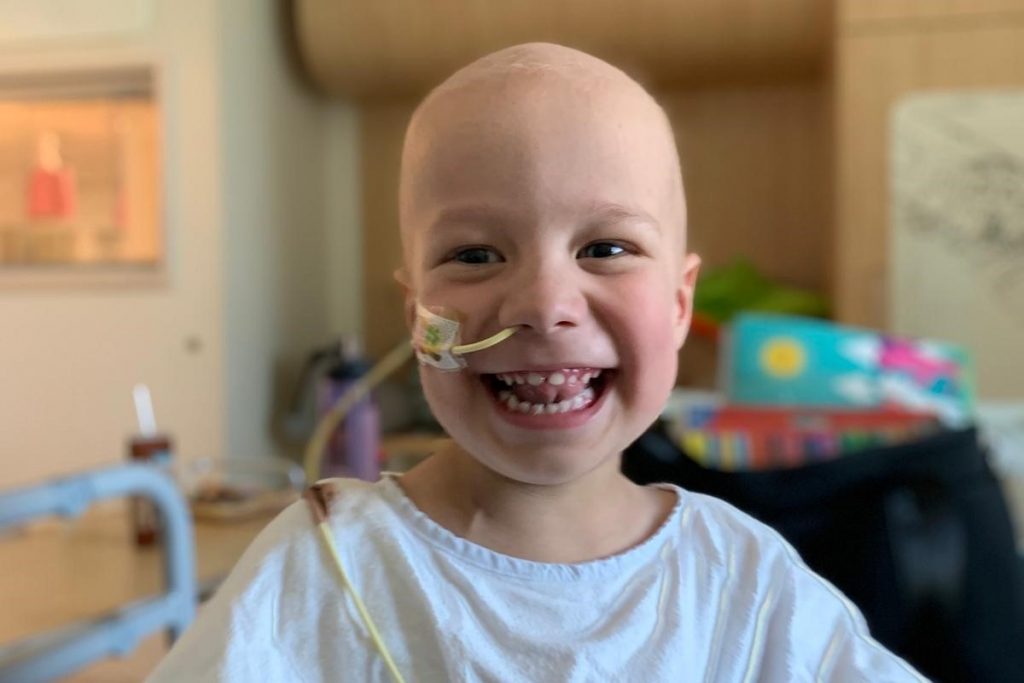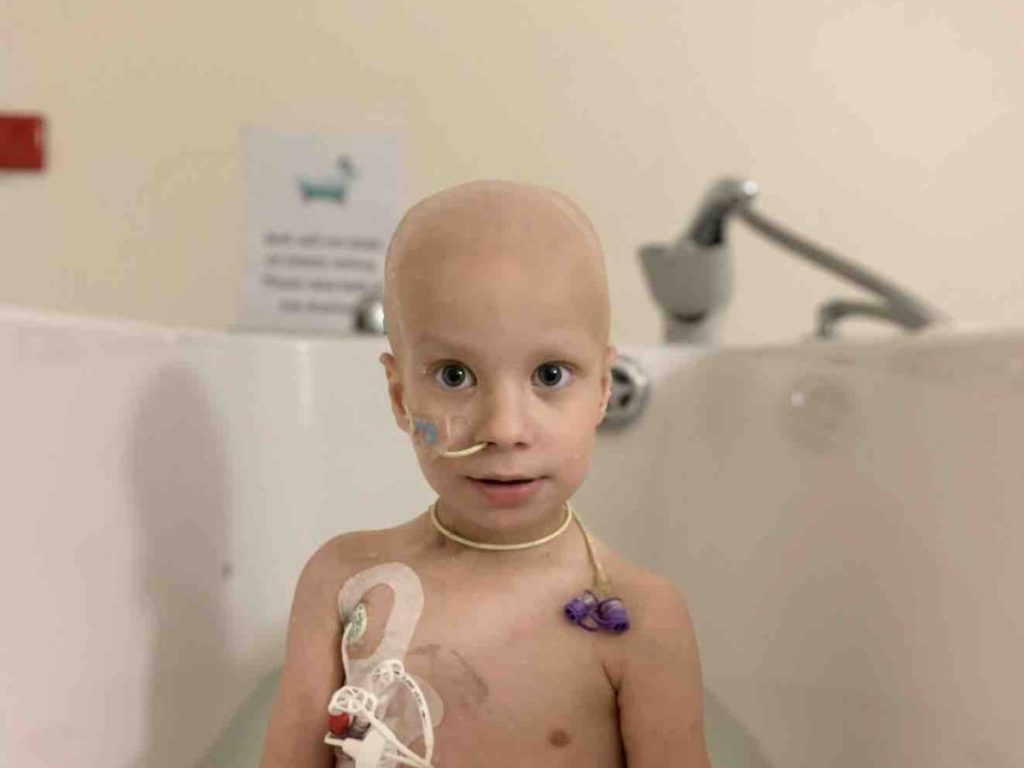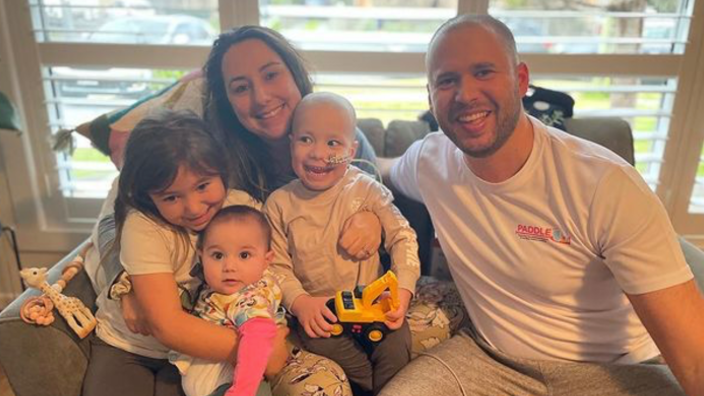An inspiring Greek Australian family is fighting to save their three-year-old son, Manoli, after he was diagnosed with Neuroblastoma, a rare form of aggressive cancer that only affects one in 1000 Australian children.
Manoli, who is better known as Oli, was a lifeline for his parents, Joel and Leni Plueckhahn (nee Karageorgiou), after the death of Leni’s dad from another rare form of cancer known as multiple myeloma.
“[My dad] spent the last two and a half weeks of his life basically holding Oli in his palliative care room,” Leni tells The Project.
But that’s why when Joel and Leni noticed in December 2020 that Oli was limping, and later not able to walk at all, they were heartbroken. He was first diagnosed with osteomyelitis, which is a bone infection, but eventually doctors said Oli had agressive and high-risk neuroblastoma.
“I was in hospital with Oli at the time and they said it was cancer and that just hit me like a tonne of bricks. Just hearing those words is something you never wish on anyone,” Joel says.

Neuroblastoma is a cancer that affects immature or developing cells and spreads quickly. There’s no known reason for the disease and it’s not genetic. Only around 40 children in Australia are diagnosed with neuroblastoma each year.
“You blame yourself and you wonder what you could’ve done differently… but there’s no prevention. It’s just purely bad luck,” Leni tells The Project.
Getting access to a clinical trial:
Since Oli’s diagnosis, he has had a 12 hour operation to remove the primary tumour in his stomach, six cycles of chemotherapy and a stem cell transplant. But that’s just the beginning.
“He’s already lost his hearing. He’s not eating now. He hasn’t had anything to eat since really Christmas. Obviously, he’s got the hair loss, he’s got to be fed by the nasal feeds,” Joel explains.
Oli also has to undergo radiotherapy and immunotherapy. There’s also a 50% chance he will relapse.
“We have been told basically that if your child relapses, it’s basically impossible to cure after that,” Leni explains to the Australian TV show.

In Australia, there’s limited options to prevent relapse and that’s why Oli’s best chance of survival is a DFMO clinical drug trial which is currently underway in the United States. Whilst the government does cover some costs for medical treatment overseas, as a general rule it doesn’t for clinical trials.
Leni’s sister, Alithea Karageorgiou, has been helping with fundraising by setting up a Go Fund Me page for Oli. So far they’ve raised over $400,000.
“If you’re told there’s something you can do to save your child’s life, you’re going to do it. We have to do it. We already had a huge loss, we lost dad, we can’t lose our little boy,” Alithea tells The Project.
Leni agrees and says she’s willing to do anything to get her son the treatment he deserves.
“There’s about a dozen parents that have been over there and they have seen good results so far and if there’s a 1 percent chance that this is going to prevent relapse then we will do it,” she says.
There’s a long battle ahead for a determined little boy and his loving family.

